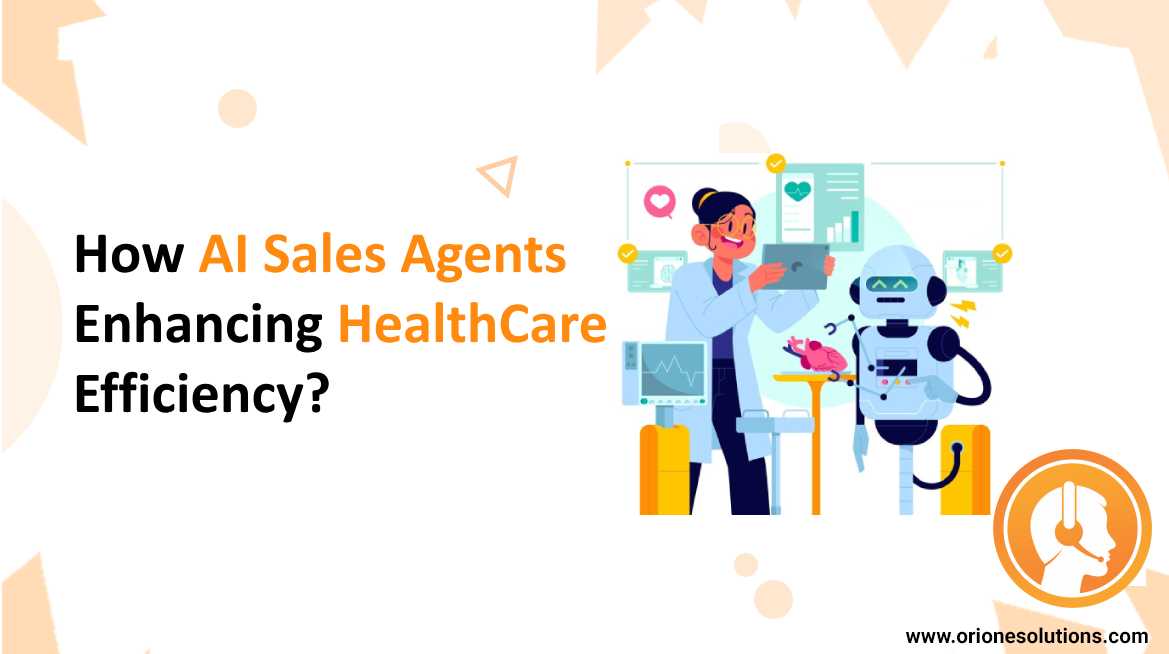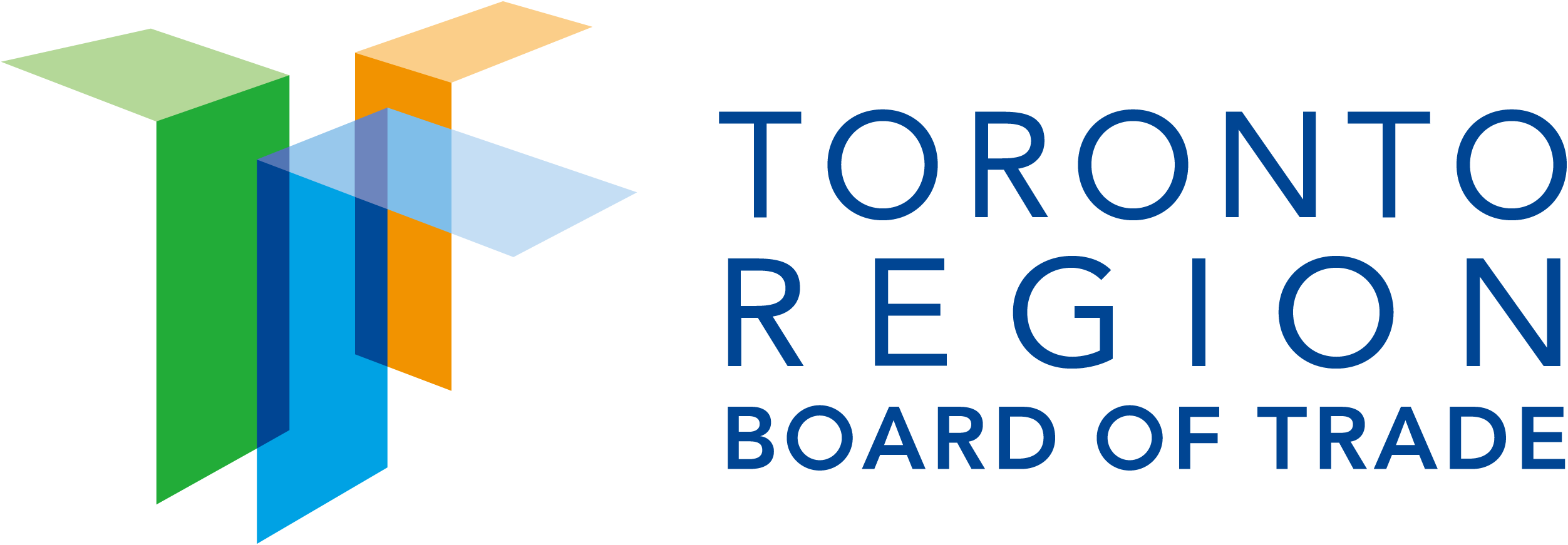When you hear the word healthcare, you only think of doctors, not AI agents, right? What if you discover that artificial intelligence is helping companies in the healthcare industry grow and succeed? AI agents in the healthcare industry have been working with people to change today’s dynamic environment.
Discover everything you need to know about artificial intelligence (AI) in healthcare, including its uses, essential elements, advantages, and prospects.
Understanding AI Agents
AI agents serve as your helping hand, offering solutions such as decision-making and action to accomplish a particular objective by adjusting their software to the environment in which they are being used. AI agents for healthcare collect data through sensors and manage data to carefully consider each choice. They also monitor the process and use feedback to enhance performance.
According to Grand View Research, the global AI in the healthcare market was valued at $14.6 billion in 2023 and is expected to increase at a compound annual growth rate (CAGR) of 37.5% between 2024 and 2030, reaching an estimated $212.6 billion by 2030.
AI-powered healthcare agents are intelligent software programs that are specifically made to interact in a given environment and learn from experiences. They are trained on large databases and patterns. They are useful in healthcare because of their capacity for learning and adaptation.
What are AI Agents in Healthcare?
AI agents are always attempting to change healthcare by assuming a variety of responsibilities, including form consultation, diagnosis, and treatment planning to provide each patient with more individualized care. By evaluating a large amount of data, finding trends, forecasting potential health risks, enhancing early intervention, and offering more potent treatment plans, they function as intelligent software. AI-powered healthcare bots may more easily search through patient records, genetic data, and medical imaging, enabling physicians to make better decisions.
In addition to diagnosing and treating patients, AI agents in healthcare are essential for patient care and assistance. They can readily respond to inquiries about their illnesses and provide individualized information. AI chatbots are available around the clock to improve patient happiness, reduce the workload for medical staff, and provide access to medical advice.
When medical attention is needed, these agents can remotely monitor a patient’s health and identify potential concerns early. We will witness more inventive technology developments as AI grows.
Key Components of AI Agents in Healthcare
AI agents are transforming the healthcare software development field by automating tasks, enhancing diagnostics, and customizing care, among other things. The following are essential elements of agent artificial intelligence that support its operation:
Machine Learning
Medical photos and patient records are used to train AI agents on the data, which allows them to find patterns and forecast results. They can also identify potential risk factors, diagnose any early or current disease, and customize treatment through the use of AI agents.
Natural Language Processing
Artificial intelligence (AI) agents can better understand and interpret human-like language due to natural language processing, or NLP. They can accurately compile reports, extract information from medical records, and analyze patient inquiries.
Computer Vision
The advantages of AI agents in healthcare include improved early illness analysis, tumor identification, and surgeon assistance during surgeries. AI agents can also readily comprehend and even interpret medical imagery, including X-rays and other relevant scans.
Planning and Decision-Making
AI agents in the medical field can evaluate information and decide based on their understanding of the patient and the surroundings. This helps them in making treatment recommendations, anticipating possible issues, and organizing a patient care schedule.
Collaborative Interaction
Healthcare AI agents are made to communicate with people in an easy-to-use manner. This will make it easier to answer inquiries, give concise explanations, and accommodate different user preferences.
Uses of AI Agents in Healthcare
In the healthcare industry, AI agents driven by computer vision, natural language processing, and machine learning are being used.
Examine the use of AI agents in the medical field:
Disease Detection and Diagnosis
AI-powered medical agents’ capacity to interpret MRIs, mammograms, and X-rays to identify any abnormalities as soon as possible and enhance treatment results and survival rates. AI agents can also examine patient data, symptoms, genetic information, and medical history to make a diagnosis based on a patient’s medical history.
Treatment Planning
AI agents in healthcare algorithms can follow patient information and medical history to provide individualized treatment plans as per the patient’s requirements and procedure-related health hazards. By discovering possible medication candidates, forecasting therapeutic efficacy, and potentially streamlining drug development procedures, AI can also speed up discovery.
Patient Monitoring
Using AI devices like sensors to manage and monitor patients is another use for AI agents. Sensors make it simple to track a patient’s vital signs, and telemedicine app development, sometimes allowing for remote patient care and intervention.
Administrative Efficiency
Automating medical billing and coding procedures, lowering administrative costs, and increasing efficiency are crucial to AI agents for healthcare. As a result, waiting times can be reduced and patient experiences enhanced by AI-powered healthcare agents who optimize appointment scheduling.
Development and Medical Research
Compared to manual analysis, AI agents can easily evaluate huge data from research articles and medical records, which aids in finding patterns and generating insights that may result in therapeutic discoveries. AI agents in healthcare can help with clinical trial recruitment and design.
Customized Healthcare
Artificial intelligence (AI) programs have been applied in healthcare to forecast medication responses, detect genetic predispositions, and customize treatment based on patient data. The effectiveness of treatment may be increased and potential negative effects may be decreased with this individualized strategy.
Mental Health Support
Chatbots or virtual assistants are another crucial use for AI-powered healthcare agents. They are engaged to support and assist those who may be experiencing mental health problems. Patients are given access to resources and assistance as an essential medical treatment.
Additionally, it can read data to determine whether the patient has previously needed mental health support and offer early intervention.
Advantages of Using AI Agents in Healthcare
AI agents have a wide range of applications in healthcare, from helping with surgery to detecting diseases. The following are some advantages of AI agents in medicine:
Enhanced Accuracy
AI agents have made it much easier and faster than ever for people to analyze large amounts of data at once in the healthcare industry. This leads to better treatment plans and forecasts in addition to more accurate diagnoses.
Advanced Prevention and Detection
You may think of AI bots as being able to sense diseases, but they can identify health hazards much more quickly. This makes it possible to avoid or cure the illness by prompt treatment and interventions.
Simplified Administrative Tasks
AI agents can complete many of the duties that healthcare staff must complete, freeing up their time. It enables them to devote more of their time to other crucial tasks like patient diagnosis and treatment, which could improve healthcare services.
Remote Patient Monitoring
AI agents can use big data analysis to find indications that a patient is deteriorating or that they are having health problems. Patients who have had surgery benefit from this since it allows for continuous remote monitoring, enabling prompt treatment.
Decreased Healthcare Costs
Because AI agents perform better, make mistakes less frequently, and diagnose diseases earlier, overall healthcare costs can be greatly decreased. Early detection of expensive problems through automation can stop them from getting worse when timely solutions are put in place.
Best Practices of AI Agents in Healthcare
Despite the advantages of AI agents in healthcare, it is crucial to discuss practical and ethical concerns when considering their application.
Three crucial best practices that will ensure ethical AI in healthcare are as follows:
Data security and Confidentiality
One essential component of the approach is the preservation of private patients. Since the goal of AI is to train the AI bots for usage, a large amount of medical data is needed. Laws like the Health Insurance Portability and Accountability Act must therefore be complied with.
Additional techniques can be used in conjunction with anonymization techniques to successfully improve patient privacy.
Fairness and Bias Mitigation
The reason behind this is that AI systems are only as good as the training data they are fed. By producing biased AI agents from uneven data, machine learning algorithms in the healthcare industry could increase pre-existing inequity. Therefore, it is essential to use high-quality, diversified data sets that include every patient across the care continuum.
Overall, it is important to remember that the goal of AI agents should be to give individuals tools that enhance their understanding rather than replace it.
Explainability and Transparency
The unpredictability in decision-making, sometimes known as the “black box,” is a problem in healthcare as well because of the choices made by AI models. A specific decision should be the result of a clear and intelligible mental process. Respected healthcare experts can also benefit from a better understanding of the reasoning behind AI.
Building an AI Agent for Healthcare
Agents in the healthcare sector are thought to be implementing AI to enhance patient experiences, productivity, and diagnostic results. It can be applied in a variety of ways, including virtual personal assistants and diagnostic applications with strong data analysis skills. Nonetheless, responsible development must be carried out methodically or with careful thought.
Defining Your Needs
Find out the real problem you want to solve. Artificial intelligence can therefore improve diagnostics, use data to personalize therapy, streamline tasks, and keep an eye on patients via the Internet.
Building Transparency and Trust
For this reason, when developing an AI, we need to consider challenges related to data security and privacy, bias and equity, explainability, and comprehending the thoughts of AI agents.
Building a Strong AI Agent
The process of constructing an agent involves several crucial processes, such as gathering and preprocessing data, choosing and training models, integrating and testing them, and completing the agent’s deployment and monitoring phases.
Future of AI Agents in Healthcare
As AI technology develops further, it suggests that we will have increasingly experienced agents capable of handling challenging tasks. Drug research using artificial intelligence has the potential to revolutionize the field at a scale never before seen, leading to the development of novel, life-saving medications considerably more quickly.
AI can also improve the process of tackling health individuality by enabling agents to offer specific, customized treatment options based on a patient’s genetic profile, lifestyle, and medical background.
Overall, it is up to the AI agents to transform the healthcare industry in a way that is patient-centered, proactive, and preventative.
Why Choose Orion eSolutions for AI Sales Agent Development?
Now, you might have decided to build an AI agent for your healthcare business. Here, it would be best to seek help from a reputable AI development company. At Orion eSolutions, our skilled developers can help you leverage the AI potential and enhance business workflows altogether.
We utilize several techniques and technologies to build ML and NLP solutions. Additionally, we created an AI agent called “Voagents.ai.”Businesses in industries like real estate, healthcare, call centers, and restaurants may use AI-backed technology to automate time-consuming tasks and enhance healthcare facility efficiency.
So, hire our skilled developers and allow us to build an AI agent for your healthcare establishment.
Wrapping Up
The healthcare system could be revolutionized by AI agents. It offers several advantages, including telemonitoring, personalized therapy approaches, quicker processes, and more accurate diagnoses. However, it takes a lot of planning and assistance from an AI consulting services company to build an AI agent that is acceptable.
Therefore, AI agents have a bright future in the healthcare sector since they will enable the development of a new preventive model based on technological opportunities and the redesign of the healthcare system. The number of agents will rise in the future as AI technology develops more, but they will interact with patients in the most efficient way possible.
You can connect with us to book a demo of how our Voagent.ai can benefit your healthcare business.









